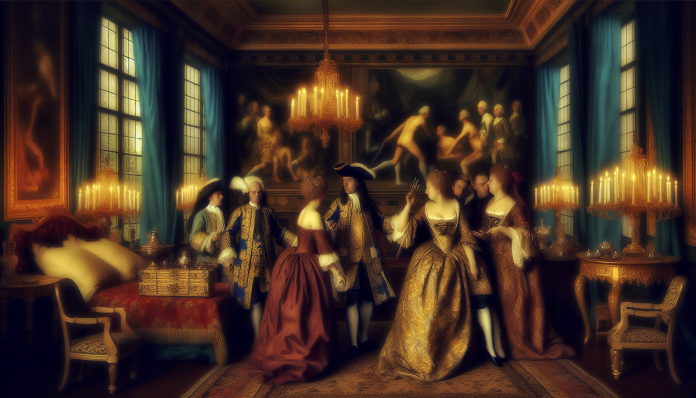Introduction
In the annals of European history, few figures are as infamous as King Juan Carlos I of Spain. Once celebrated as a paragon of a modern monarch who helped steer Spain toward democracy post-Franco, his reputation took a severe hit due to a series of scandals, particularly surrounding his extramarital affairs. His most notorious affair, with the alluring and enigmatic Corinna Larsen, became emblematic of royal excess at a time when Spanish citizens were embarking on their own quest for transparency and accountability. The early 21st century was marked by a transition in moral attitudes, as traditional values clashed with modern expectations of integrity from public figures.
The Scandal
The scandal surrounding Juan Carlos I truly erupted in 2012 when it became public knowledge that he had not only been on a luxurious elephant hunt in Botswana—while Spain grappled with a dire economic crisis—but also embroiled in a deeply personal affair with Corinna Larsen, a Danish-German businesswoman. The escapade raised multiple eyebrows, but it was the subsequent revelations that unleashed a torrent of public outrage.
Key events included:
- The Elephant Safari: Public outcry erupted when photos from the elephant hunting trip surfaced, painting a picture of a king oblivious to the struggles of everyday Spaniards.
- Corinna’s Accusations: In 2012, she claimed that Juan Carlos had hidden assets and made threats against her, as their relationship soured.
- Audio Leaks: In 2020, leaked recordings from Corinna revealed the extent of their relationship and his potential financial impropriety, with her stating, “I can’t be part of your criminal activities.”
These events culminated in an inquiry by the Spanish authorities into Juan Carlos’s financial dealings, leading to his voluntary exile to the United Arab Emirates in 2020, a decision seen by many as an abdication of responsibility.
Moral and Cultural Analysis
The reactions to Juan Carlos’s indiscretions were as polarized as his reign was long. On one hand, many Spaniards felt betrayed; they’d admired a king who once embodied hope and renewal for the nation. A survey conducted during the height of the scandal indicated that public trust in Juan Carlos had plummeted to around 23%, a staggering drop for a figure once deemed a national treasure.
Cultural Context: In Spain, traditional views about monarchy and honor historically dictated reactions to royal behaviors. The late 20th century saw a move towards secrecy in royal matters, but the FN (fuerza nacional), a significant political faction in Spain, insisted on maintaining certain royal dignities despite the influx of scandalous allegations.
Consequences: The ramifications of the scandal were far-reaching:
- Exile: Juan Carlos’s departure left a void in the Spanish monarchy, with many questioning the future of the royal family and its credibility.
- Public Disillusionment: Trust in the monarchy suffered a lasting blow, leading to uprisings in sentiment and calls for an abolition of the monarchy altogether.
Modern Perspective: Fast forward to today, where the audience reflects contemporary values centered around transparency, accountability, and social justice. If this scandal were to unfold currently:
- The digital age would amplify accountability via social media, creating instant backlash against figures like Juan Carlos.
- Discussions around consent, power dynamics in relationships, and the reckoning with historic abuses of authority would frame the narrative in a significantly different light.
- There would likely be calls for more public accountability and discussions surrounding the implications of wealth and privilege in public office.
History teaches us that scandals, especially those involving royalty, reveal deeper cultural currents. The fallout from Juan Carlos I’s affairs reflects societal shifts that challenge monarchy, morality, and the responsibilities of public figures in today’s world.

